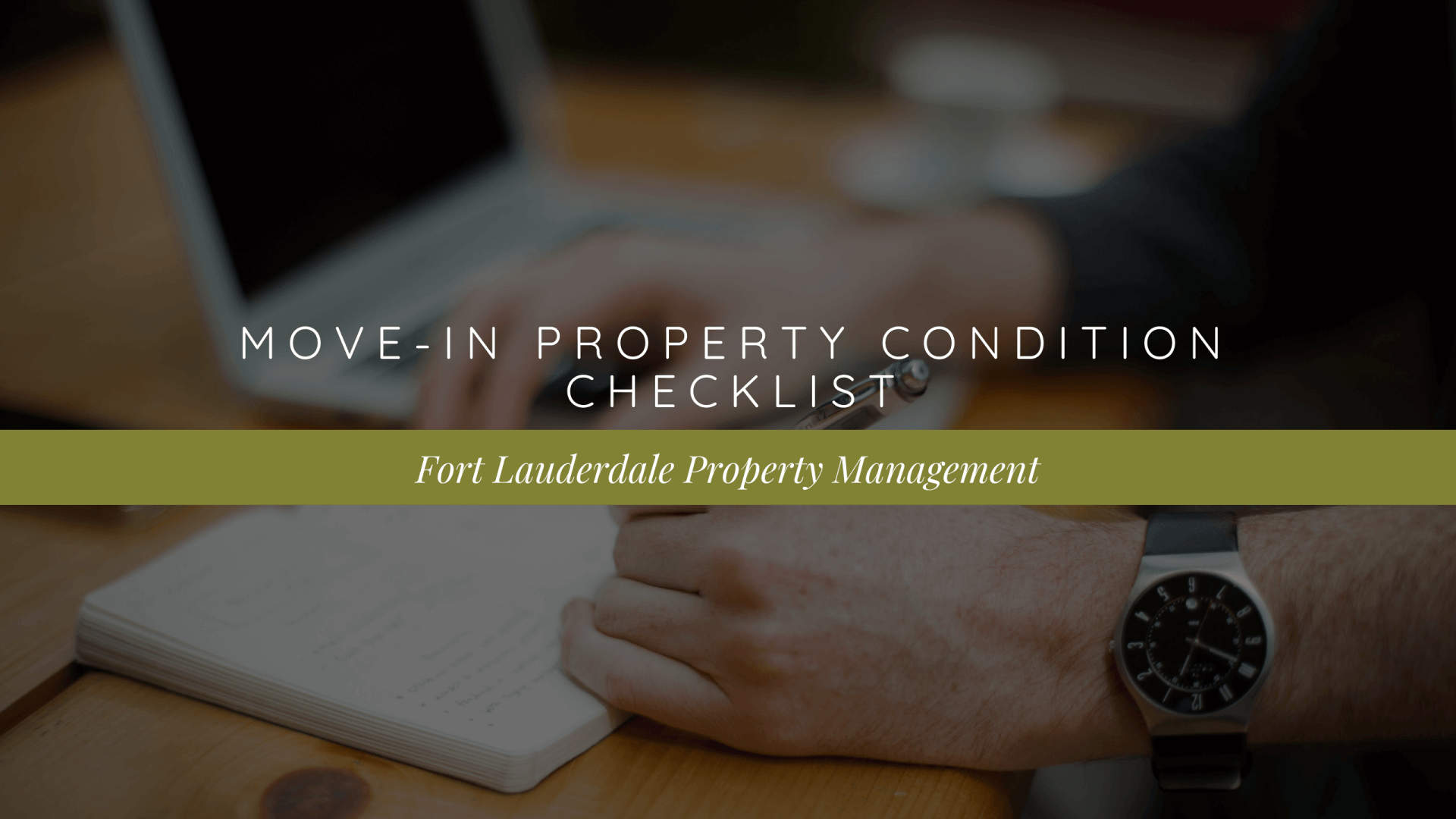A checklist can help hold tenants accountable for damage that occurs to the rental during the tenancy. It also gives tenants an objective evaluation of the property they’re moving into. If you need some help creating a checklist or you have questions about how to apply this to your Fort Lauderdale rental property, please contact us at Florida Property Management Services.
Why a Move-in Property Condition Checklist is Important | Fort Lauderdale Property Management

Moving into a new home can be stressful for residents. It’s stressful for Fort Lauderdale property owners, too. There are a lot of details to manage and easy opportunities for mistakes and hassles. Having a move-in property condition checklist can help streamline the transition and ensure you’re accurately and transparently documenting the condition of your Fort Lauderdale rental home.
Documenting the Condition of Your Property
The most important reason you’ll conduct a move-in condition inspection and keep track of what you find on a checklist is to protect your property. At the end of the lease term, you’re going to expect you’ll have that property returned to you in the same condition that it was rented - with an allowance for normal wear and tear.
The inspection checklist helps you document that condition.
Your checklist should include all the systems and functions of the property, such as heating and air conditioning and water. You’ll want to note that everything works. You’ll also want to check the appliances, surfaces, floors, windows, walls, and outdoor space.
Take pictures of everything, including the inside of closets and the appearance of drawers. You’ll want to make sure you’re easily able to
distinguish wear and tear from damage at the end of the lease term. The photos will help you do that.
Make Any Necessary Repairs
Another good reason to have this move-in checklist is that it will help you stay organized in terms of any repairs or replacements that might be necessary. Perhaps while you were inspecting you noticed some light bulbs were out or the dishwasher wasn’t working. You’ll want to schedule this work to be completed quickly, so your vendors have time to do it and clean up before your tenant moves in.
Make sure you’re offering your new tenants a clean, functional space that meets their expectations. You don’t want to be rushing around after they’ve already moved in, trying to take care of last minute repairs.
Include Your Tenants in Evaluating Move-In Condition
You and your tenants will need to agree on the condition of the property. While they will likely not be with you while you’re conducting your
rental inspection, you should still give them an opportunity to add anything to the inspection report after they’ve moved in. Provide the checklist to your residents right after they move in and ask for it back in a day or two. They can either make additional notes or sign off that the condition of the home is exactly as the checklist indicates.
This can save you time at the end of the lease period and prevent potential disputes over the security deposit. If you make a deduction for a broken drawer in the kitchen, for example, your tenant won’t be able to claim it was like that when they moved in. The condition report will reflect otherwise.














